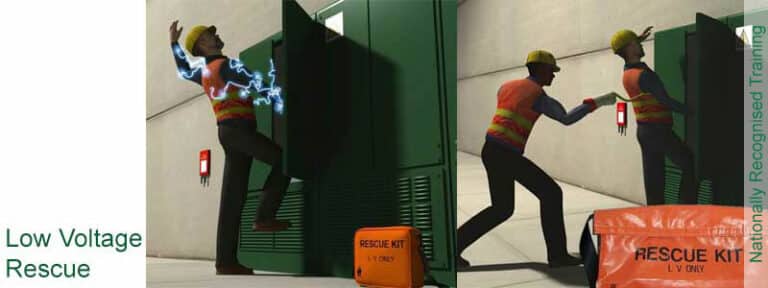Introduction
Childcare service providers have a basic obligation to guarantee the health and wellness, security, and health of youngsters in their care. This obligation expands beyond mere supervision; it incorporates a thorough understanding of case coverage protocols. By establishing clear procedures, educators can resolve emergency situations efficiently while ensuring compliance with legal and governing requirements. In this article, we will certainly look into numerous elements of event coverage methods, exploring crucial components that promote a much safer setting for children.
Incident Coverage Protocols: Ensuring Safety And Security and Conformity in Childcare
What are case reporting procedures? In the context of child care, they refer to methodical procedures designed for documenting any kind of incidents or accidents involving kids. These procedures offer not just as a way of communication among staff but additionally as a device for renovation and compliance with safety laws. The relevance of these procedures can not be overstated; they form the backbone of effective threat administration within childcare settings.
The Importance of Incident Reporting
Why Record Incidents?
Reporting events is essential for a number of reasons:
Safety Enhancement: Documenting events helps determine patterns or recurring problems that require addressing. Legal Conformity: Regulatory bodies commonly need paperwork to demonstrate adherence to safety and security standards. Parental Communication: Maintaining parents educated fosters depend on and transparency. Training Opportunities: Analyzing occurrences can cause boosted training programs for staff.Key Aspects of Efficient Reporting
A reliable occurrence report should consist of:
- Date and time of the incident Location Description of what happened Individuals involved Witnesses Actions taken
Understanding Immediate Feedback Responsibilities
What Are Immediate Feedback Responsibilities?
Immediate feedback duties are the activities that childcare personnel should take quickly complying with an event. This may vary from administering emergency treatment to informing moms and dads or authorities.
First Aid Fundamentals in Childcare
A well-appointed childcare center ought to have trained staff with the ability of offering emergency treatment in emergency situations. Understanding standard first aid practices such as taking care of minor injuries, choking avoidance, and acknowledging asthma signs and symptoms is vital.
HLTAID012 Supply Emergency treatment in Education
Overview of HLTAID012 Certification
HLTAID012 certification is particularly made for those working in instructional setups. It covers crucial abilities like mouth-to-mouth resuscitation, emergency treatment responses for injuries, and just how to manage clinical emergencies entailing children.
Importance of Qualification in Childcare Staff
Having accredited staff makes certain that immediate response activities line up with CPR Course Canberra CBD finest methods. This qualification improves educator confidence when taking care of emergencies.
Choking Avoidance Strategies
Recognizing Choking Risks
Choking is a substantial concern in child care settings. It's essential to recognize foods that position choking threats and implement preventative measures.
Training Staff on Choking Responses
Staff ought to be educated on just how to react effectively if a child chokes. This consists of understanding exactly how to perform back blows and abdominal drives safely.
Epipen Administration Training
When Is Epipen Administration Necessary?
Children with extreme allergic reactions may call CPR courses and training in Canberra CBD for Epipen administration throughout anaphylactic reactions. Identifying signs early can conserve lives.
Proper Strategies for Epipen Use
Training on proper epinephrine administration strategies is important for all child care team handling youngsters in jeopardy for severe sensitive reactions.
Managing Minor Wounds Effectively
Common Kinds of Minor Wounds
Minor injuries can range from cuts and scrapes to bruises sustained during play activities like playground mishaps.
Steps for Correct Wound Management
Clean the wound with soap and water. Apply antiseptic if necessary. Cover it with a sterilized bandage. Keep an eye out for indicators of infection.Proper Hand Hygiene Practices
Importance of Hand Hygiene in Childcare Centers
Maintaining proper hand hygiene aids protect against disease episodes amongst kids that are specifically at risk because of their developing immune systems.

Teaching Handwashing Techniques
Staff ought to lead by instance, demonstrating effective handwashing methods after changing diapers or before meals.
Child Defibrillation Guidance
Understanding When Defibrillation Is Required
In unusual situations, defibrillation may be needed if a youngster experiences heart attack. Knowing when and how to make use of an AED (Automated External Defibrillator) can make all the difference.
AED Training Fundamentals for Childcare Staff
Training should consist of how to locate an AED quickly and its operational procedures certain to kids versus adults.
Building Educator Self-confidence Through Training
Importance of Continuous Expert Development
Regular training sessions boost teachers' confidence by keeping them upgraded on current best techniques associated with kid safety and emergency situation reaction protocols.
Creating a Culture of Safety And Security Awareness Amongst Staff
Encouraging open communication regarding security concerns fosters a setting where all employee really feel encouraged to report occurrences without worry or hesitation.
Recognizing Bronchial asthma Symptoms Early
Common Indications That Indicate Bronchial Asthma Attacks
Asthma signs and symptoms can manifest all of a sudden; therefore, acknowledging hissing, coughing, lack of breath, or breast rigidity is vital in supplying prompt intervention.
Emergency Activity Plan for Asthma Management
Every childcare center ought to have individualized bronchial asthma activity plans describing specific actions based on each kid's demands-- guarantee all staff members are acquainted with these plans!
Addressing Play ground Mishaps: Finest Practices
What Prevail Play area Hazards?
Playground problems can take place due to inadequately conserved devices or inappropriate supervision degrees-- recognizing these dangers is essential!
|Sort of Threat|Examples|Preventative Steps|| -----------------|-----------------------------------|--------------------------|| Devices Issues|Damaged swings or slides|Normal inspections|| Guidance Gaps|Kids playing unsafely|Adequate staff-to-child ratio|
Childproofing Techniques: Developing Safe Spaces
How can one properly childproof areas within a childcare setup? While it could seem daunting in the beginning glance-- utilizing straightforward strategies guarantees security without endangering playtime fun!
Identify prospective hazards (sharp corners). Use soft products (foam pads). Secure furnishings against walls. Ensure secure storage space services (secured closets).Incident Coverage Protocols: A Step-by-Step Approach
What makes up effective event reporting treatments? Below's a short guide:

Written vs Practical Parts in Educating Programs
What do we indicate by created vs practical components throughout training sessions? Each aspect serves unique purposes!
- Written parts generally involve theory-based discovering covering policies/protocols relevantly-- assume handbooks & & handouts! Practical parts engage students actively with simulation exercises duplicating real-life scenarios-- role-playing makes it remarkable!
Renewal Timelines: Staying Updated
How frequently should qualifications be renewed? Generally:
- First Aid Qualifications usually need revival every 3 years. Ongoing training sessions aid keep knowledge fresh/updated!
FAQs Concerning Occurrence Coverage Protocols
1) What sorts of events require reporting?
Any kind of injury calling for emergency treatment therapy certifies as reportable! This includes falls/bumps that don't appear major at first glance yet later on intensify into problems needing attention!
2) Are parents informed concerning every incident?
Yes! Transparency builds count on in between families/care facilities-- moms and dads deserve full awareness regarding their youngster's health!
3) Is there a conventional design template for incident reports?
Many facilities develop their very own themes matching neighborhood policies while ensuring addition mandatory info points pointed out earlier!
4) Can volunteers assist during emergencies?
While appealing volunteers supplies useful support-- it's vital they're trained effectively in advance on following procedures laid out by qualified workers existing onsite!
5) How does one deal with duplicated behavioral problems leading up towards accidents?
Documenting recurring patterns allows educators/managers alike identify triggers leading bothersome behaviors encouraging additional conversations among stakeholders involved making certain every person remains informed!
6) Are there particular standards governing food allergies management?
Certainly! Standards exist detailing best practices around recognizing risks associated with allergic reactions consisting of labeling foods plainly connecting potential dangers properly lessening risks total within centers offering sufficient training concerning action measures required thereafter as well!

Conclusion
In final thought, recognizing case reporting protocols is paramount for keeping safety and security requirements compliance within childcare setups across Australia! Promoting recurring learning chances motivates favorable society surrounding health/safety promoting proactive procedures as opposed to reactive ones whenever feasible-- a collective duty shared amongst every person involved-- from educators down with administrative employees inevitably benefiting our most priceless source ... our children!